Animation
- Home
- Did you say PATAMIL?
- Animation
Governance of PATAMIL

The project leaders
Bertrand SAJALOLI
Bertrand Sajaloli, a geographer and lecturer at the University of Orléans, is currently Chairman of the Biogeography Commission of the CNFG (Comité National Français de Géographie, http://www.cnfg.fr/commissions/biogeographie/ ) and of the Wetlands History Group (www.ghzh.fr). He was born on 20 August 1958 and is a member of the Board of the CEDETE laboratory.
He devotes his research to a concept little used by geographers, the culture of nature, whose main hypothesis is that the cultural relationship that human beings, social groups and local societies, local authorities and States have with nature (and in particular with wetlands) is a major biogeographical agent, shaping landscapes, influencing the functioning of ecosystems and, ultimately, their biophysical richness, biodiversity and sustainability.
Bertrand Sajaloli has been vice-chairman of the CENTRAIDER regional multi-actor network (www.centraider.org) involved in international solidarity and decentralised cooperation since 2011. He also conducts research into the development of countries in the South, particularly in terms of food sovereignty. He is co-leader of the RADICEL-K and BIOSOL RPA-IR projects, which look at the diagnosis of development aid and the dissemination of agro-ecology in Burkina Faso, and is also leading the research being conducted as part of the BOUDIOU project, also funded by the Centre Val de Loire Region, which is looking at the effects of climate change on the urban marshes of Bourges (Cher) and Diourbel (Senegal). Similarly, with the NGO A.S.I.E., he has supervised work carried out with the Dhan Foundation looking at the links between food crops linked to agricultural production and the socio-economic conditions in which they are produced.
He is the author of around ten books and fifty articles exploring these themes.

Laura VERDELLI
An architect and urban planner, Laura Verdelli is a lecturer at the École Polytechnique of the University of Tours in the Department of Spatial Planning and the Environment.
Polytechnique at the University of Tours in the Department of Spatial Planning and the Environment, and is a member of the UMR CNRS 7324 CITERES CItés, TERritoires, Environnement et Sociétés.
Laura Verdelli’s research focuses on the construction of new heritage objects and their spatial impact on issues such as public policy, tourism and changes in stakeholder networks. networks of players. In particular, she is interested in the processes of identification, protection and enhancement of cultural landscapes, contemporary heritage dynamics, the image of the In particular, she is interested in the identification, protection and enhancement of cultural landscapes, contemporary heritage dynamics, heritage branding (particularly in relation to UNESCO), interactions between heritage planning and strategic spatial planning, and the contemporary dynamics that follow the attribution of added heritage value to productive cultural landscapes (particularly along the water). Geographically, her research takes place in European and non-European contexts, particularly around the Mediterranean basin and in India. Methodologically, she works on the basis of qualitative analysis of official texts (public policies, political and institutional speeches, laws); texts and iconography from marketing communications and advertising; spatial projects and interviews with stakeholders and residents.
The key members

Frédéric LANDY
Frédéric Landy is Professor of Geography at the University of Paris Nanterre. He was Director of the French Institute of Pondicherry from 2016 to 2020. Using a geographical lens, he takes a broad view of agriculture, taking into account non-farming activities within the household as well as the role of the environment, the place of the city and different scales. He took part in the WaterPondi project on the future of peri-urban reservoirs and water management in Pondicherry.
His work on the Patamil Task 2 project seeks to address two issues: 1. the problem of food justice, i.e. ensuring that poor households have access to good-quality, low-cost food, while enabling small-scale farmers to engage in organic production without too much risk; 2. more vertically, the relationship between public policy and consumers and farmers, with a particular focus on the role of the Public Distribution System, which in Tamil Nadu is able to supply half of the rice consumed by households free of charge, but which in the process competes with local farmers and other more nutritious cereals.
He is the author or co-author of Un milliard à nourrir. Grain, territory and politics in India, Belin, 2006, and L’Inde. Du développement à l’émergence, Armand Colin, 2015.
Online: “Why India (may) not need humanitarian aid”, Alternatives humanitaires, 21, 2022 https://www.alternatives-humanitaires.org/fr/2022/11/28/pourquoi-linde-na-peut-etre-pas-besoin-daide-humanitaire-en-matiere-alimentaire/

Geneviève PIERRE
Geneviève PIERRE is Professor of Geography at the University of Orléans. She works on agricultural and food issues in the French countryside. At the same time, she is leading the APR-IR GASILAG programme (2020-2024), which is looking at food waste and the establishment of networks of players at different levels to take preventive action in the Centre Val de Loire region.

Hélène GUETAT-BERNARD
Hélène Guétat-Bernard, a social science researcher (socio-economist with a background in geography and sociology), is a professor at ENSFEA, the MAFA school of higher agricultural education, and a member of the UMR LISST Rural Dynamics team. She is also an associate member of the Umifre Institut français de Pondicherry and two Toulouse-based networks, ARPEGE (feminist studies) and ATECOPOL (political ecology). She was head of the social sciences department at IFP from 2017-2021. During this period, she played a leading role in the opening of a platform on food at IFP, which created a space for dialogue between science and society. Since 2018, the organisation of an annual event has facilitated a variety of forms of exchange, including seminars, field visits and support for events such as an organic farmers’ market, exhibitions, discussions and food demonstrations. This ‘festival’ is one of the highlights of the PATAMIL project.As part of this project, she has also conducted a survey of wild edible plants such as leafy vegetables and published a booklet translated into English and Tamil, contributing to debates on the importance of food collection in both urban and rural contexts. The surveys she is following as part of the Patamil project focus on family food consumption (Prasanth A.’s post-doctorate), food processing entrepreneurs such as street vendors (Roja Lakshmi), ‘organic’ producer networks and the transmission of agricultural knowledge (K. Pathmavathy). In India, as in other projects to which she has recently contributed (notably in Senegal), the kitchen is seen as a political space for linking productive and consumer spheres, sometimes from the perspective of the subsistence economy. She is also carrying out research in France on the place of women in agriculture and agro-ecological projects, as well as in Ariège on the dynamics of a PAT for food justice.
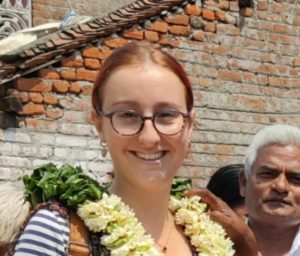
Lucie DUPERRAY
Responsible for monitoring cooperation between the Centre-Val de Loire Region (France) and the State of Tamil Nadu and Pondicherry (India)
Since 2008, the Centre Val de Loire Region has been involved in decentralised cooperation with the State of Tamil Nadu and Pondicherry in India. Numerous projects are underway in the fields of culture, tourism, education and research. India is renowned for the excellence of its research, which is a strategic focus of this cooperation.
Each year, the Centre-Val de Loire Region funds applied research projects (APR-IR), encouraging the establishment of partnerships between research laboratories and the region’s socio-economic players. These projects may be linked to one of the Region’s cooperation areas, as is the case with PATAMIL in Tamil Nadu and Pondicherry.
To monitor these projects and facilitate communication between the Indian partners and those of the Region, a Volunteer for International Solidarity (VSI) represents the Centre-Val de Loire Region in India, in Pondicherry. She plays an essential role in this cooperation initiative.
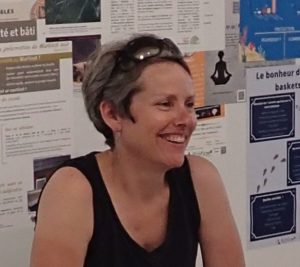
Béatrice SAULNIER
Béatrice Saulnier is in charge of projects at Centre Sciences, the Centre de Culture Scientifique Techique et Industriel (Centre for Scientific, Technical and Industrial Culture) in the Centre Val de Loire region, which aims to promote science and technology to the general public.
Her mission?
To publicise developments in the PATAMIL project, encourage meetings between those involved (in particular the secondary school students involved and the scientists in France and Tamil Nadu), help the partners to publicise their research to the general public (conferences, meetings, science festivals), and thus promote the project.

Olivier ROLLIN
Olivier is the administrator of the European Institute of Food History and Cultures (IEHCA), a scientific and cultural development agency in the field of food cultures and heritage.
Since 2019, he has led the “Cultures and Sciences of Food” Thematic Research Network, which aims to boost transdisciplinary research into food studies and food sciences. The IEHCA is developing its tools (programme of scientific meetings, editorial policy, research library, workspaces, directory) to bring together the region’s stakeholders and encourage interaction between academic and non-academic partners in order to develop collaborative international research projects.
Following the UNESCO inscription of the French Gastronomic Meal on the list of the intangible cultural heritage of humanity in 2010, the IEHCA is leading the development of the “Villa Rabelais – Maison des Cultures gastronomiques“, a project developed under the umbrella of the label “Tours, Cité de la Gastronomie” awarded by the State to the city of Tours in June 2013. This House of Gastronomic Cultures is both a resource centre and a place where the general public can learn more about gastronomy. Through these many activities, the Villa Rabelais aims to contribute to the promotion and understanding of the world’s gastronomic heritage through cultural events such as chef residencies, literary encounters, guided tastings and conferences and debates.
Working closely with the academic leaders of the PATAMIL project, the IEHCA and Centre Sciences are involved in disseminating the results of this research by using their tools to reach out to their network and the general public.
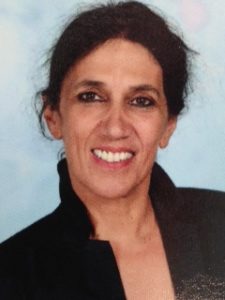
Francine DENIAU
The Lycée Franz STOCK in Mignières, Eure et Loir, is involved in the ECSI network, organised by the CNEAP Conseil National de l’Enseignement Agricole Privé network.
This membership, which is an essential part of the missions assigned to agricultural education, makes the school a partner of the Centraider RRMA.
Francine DENIAU, teacher and ECSI CNEAP regional correspondent, has involved the BTSA DATR Development and Rural Development students in the PATAMIL research programme.
It should be noted that the objectives of this BTSA DATR are to carry out targeted territorial diagnoses and to lead development projects around food issues, in particular (food as a cultural vector).
PATAMIL’s regional opportunities enabled the young students to survey local food behaviour and draw up a different approach to the realities of India!
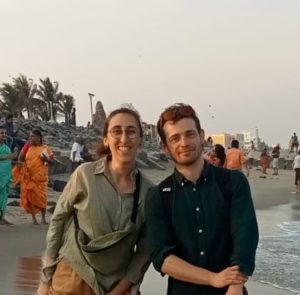
Baptiste MARIE-CATHERINE et Chloé RIGAL
A.S.I.E fully committed to the Patamil project
Patamil has been one of our association’s flagship missions since 2019, and our commitment, supported by five volunteers, is multifaceted.
Firstly, Patamil takes place, in part, on a research site in the Jawadhu Hills, where our long-standing Indian partner, the NGO the Dhan Foundation, has been working for many years since 2009.
Secondly, within our association, we have two volunteers who have training, university and/or professional experience that enables them to contribute to the work carried out by the researchers. Chloé Rigal did her 4-month Master 2 internship at the Dhan Foundation on the theme of agroecology and spirituality, while Baptiste Marie-Catherine specialised in development issues in Asia, particularly water management.
In February 2023, their mission to the Jawadhu Hills led them to take part in research work on site and in Pondicherry. Their mission report is a document that plays a key role in providing useful data for further research. During this mission, Léa Pasquier, an A.S.I.E volunteer, was able to take part in the work and learn about the problem of reintroducing the cultivation of pearl millet.
In October 2023, a new mission led by Alain Payen, in charge of the Patamil project for A.S.I.E, will travel to the Jawadhu Hills with 3 other volunteers and Aratim Kpartiou-Tchasse, a Centraider employee, as part of their participation in this project. The purpose of this mission is to take stock with the Dhan Foundation of their historic and present investment in the Jawadhu Hills and to consider the post-Patamil period as an opportunity to continue our cooperation in this area (sending individual or group volunteers, international civic services, internships in partnership with the University of Geography in Orléans, etc.).
Lastly, a major part of our commitment takes place at the Franz Stock Agricultural High School in Mignières (28) where, since 2019, we have organised workshops to raise awareness of ECSI and the SDGs and Environmental Law in conjunction with Patamil research. From this work, as part of AFD and Centraider’s Récital call for projects, we produced 4 video capsules on sustainable development. This work was carried out with teachers from the Lycée Franz Stock under the responsibility of France Deniau, the teacher responsible for the BTS DATR students. Three artists, Adrienne Bonnet, actress, writer and director, Jo Ziako, composer, musician and singer-songwriter, and Anaïs Enshaian, film-maker and editor, worked with the students to write, direct, perform and shoot the 4 video vignettes, which have since been viewed several thousand times on numerous social networks and websites.
From September 2023, A.S.I.E will continue its commitment to the Patamil project at the Lycée Franz Stock, with new students, for a further two years.
A.S.I.E: Association for International Solidarity and Education
ECSI: Education for Citizenship and International Solidarity
SDG: Sustainable Development Goals
AFD: French Development Agency
BTS DATR: Brevet de Technicien Supérieur Développement et Accompagnement des Territoires Ruraux (Advanced vocational diploma in rural development)

Cécile GROSBOIS
The research carried out by UR 6293 GéoHydrosystèmes continentaux (GéHCO) at the University of Tours is dedicated to the characterisation and multi-scale quantification of matter transfers in anthropised catchment areas. The processes of erosion and trapping and the ways in which water, particles and contaminants are transferred from one reservoir to another are assessed at different spatial and temporal scales using high-frequency field data, laboratory experiments and numerical modelling.
Sedimentology, hydrology, pedology and geochemistry (in sediments, water and soils) as well as the Louroux Observatory, the dam-break experimental channel and the CASSIS model are the four main disciplinary fields and tools that define the thematic structure of the research unit.
GéHCO has 11 teacher-researchers, 1 assistant professor, 4 doctoral students, 1 post-doctoral student, 1 research engineer and 3 technical and administrative staff.
It is participating in the PATAMIL project by characterising soil quality in the Jawadhu Hills (Task 1, WP 1).
The research of UR 6293 GéoHydrosystèmes continentaux (GéHCO) at the University of Tours is dedicated to the characterisation and multi-scale quantification of matter transfers in anthropised catchment areas. The processes of erosion and trapping and the ways in which water, particles and contaminants are transferred from one reservoir to another are assessed at different spatial and temporal scales using high-frequency field data, laboratory experiments and numerical modelling.
Sedimentology, hydrology, pedology and geochemistry (in sediments, water and soils) as well as the Louroux Observatory, the dam-break experimental channel and the CASSIS model are the four main disciplinary fields and tools that define the thematic structure of the research unit.
GéHCO has 11 teacher-researchers, 1 assistant professor, 4 doctoral students, 1 post-doctoral student, 1 research engineer and 3 technical and administrative staff.
It is participating in the PATAMIL project by characterising soil quality in the Jawadhu Hills (Task 1, WP 1).
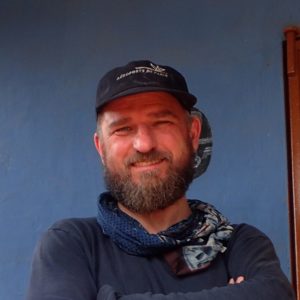
Sébastien SALVADOR
The research carried out by UR 6293 GéoHydrosystèmes continentaux (GéHCO) at the University of Tours is dedicated to the characterisation and multi-scale quantification of matter transfers in anthropised catchment areas. The processes of erosion and trapping and the ways in which water, particles and contaminants are transferred from one reservoir to another are assessed at different spatial and temporal scales using high-frequency field data, laboratory experiments and numerical modelling.
Sedimentology, hydrology, pedology and geochemistry (in sediments, water and soils) as well as the Louroux Observatory, the dam-break experimental channel and the CASSIS model are the four main disciplinary fields and tools that define the thematic structure of the research unit.
GéHCO has 11 teacher-researchers, 1 assistant professor, 4 doctoral students, 1 post-doctoral student, 1 research engineer and 3 technical and administrative staff.
It is participating in the PATAMIL project by characterising soil quality in the Jawadhu Hills (Task 1, WP 1).
The research of UR 6293 GéoHydrosystèmes continentaux (GéHCO) at the University of Tours is dedicated to the characterisation and multi-scale quantification of matter transfers in anthropised catchment areas. The processes of erosion and trapping and the ways in which water, particles and contaminants are transferred from one reservoir to another are assessed at different spatial and temporal scales using high-frequency field data, laboratory experiments and numerical modelling.
Sedimentology, hydrology, pedology and geochemistry (in sediments, water and soils) as well as the Louroux Observatory, the dam-break experimental channel and the CASSIS model are the four main disciplinary fields and tools that define the thematic structure of the research unit.
GéHCO has 11 teacher-researchers, 1 assistant professor, 4 doctoral students, 1 post-doctoral student, 1 research engineer and 3 technical and administrative staff.
It is participating in the PATAMIL project by characterising soil quality in the Jawadhu Hills (Task 1, WP 1).

Guillaume GUETREAU
Centraider supports and federates all solidarity initiatives in the Centre-Val de Loire region by organisations (associations, local authorities and public establishments) wishing to take action to help people discover the world, for more solid and sustainable cooperation and solidarity. Centraider supports PATAMIL’s communication, through its website and regular publications, to publicise the project’s objectives and results to the various public and private players involved in international solidarity.

Professor Sumathi RAJESH
Prof. S.Sumathi is an Adjunct Professor in the Department of Anthropology, University of Madras. She has been awarded ‘Lifetime Achievement Award’ for her continuous commitment with the vulnerable communities’ development and her involvement in international research projects by World Anthropology Congress 2023. She has been nominated by the Government of Tamil Nadu as an expert in community studies and supporting the government in policy analysis. She is the recipient of Fullbright, DAAD, Charles Walace, French Fellowship and visiting professor at German and France Universities. She is presently involved in an international project AI FORA, as an Indian partner, funded by Volkswagen and eleven countries are partner to it. She is an Indian partner in the PATAMIL project.

Delphine THIVET
Delphine Thivet holds a PhD in philosophy (University Paris 1 Panthéon-Sorbonne, 2008) and a PhD in sociology (EHESS, Paris, 2015). From 2003 to 2004, she held a position as a Young Research Affiliate at the International Peace Research Institute, Oslo (PRIO, Norway). In 2017, she was a Post-doctoral Researcher at the Center for South Asian Studies (CEIAS) UMR8564 – CNRS/EHESS, taking part in the international collective project research (ANR/DFG) « (New) political representative claims: a global view (France, Germany, Brazil, India, China) » (CLAIMS). She has been Associate Professor at the University of Bordeaux since 2017, in the Department of Sociology of Bordeaux University and has been Deputy Director of the Centre Émile Durkheim, Comparative Political Science and Sociology – UMR5116 (French National Centre for Scientific Research, Sciences Po Bordeaux and Bordeaux University) from 2019 to 2021. Since 2018, she has been an associate researcher at CSH-Delhi (UMIFRE 20, MEAE-CNRS).

Venkat GOVINDAN
G Venkatasubramanian holds a doctorate in sociology. He is currently a researcher at the Institut Français de Pondichéry in the Social Sciences department. He has worked on issues relating to rural geography, migration, finance and the environment, while drawing parallels with social, gender and caste inequalities.
I am a trained anthropologist who completed Post Graduation degree in the Department of Anthropology, University of Madras.

Padmavathy KRISHNAN
Padmavathy pursued her Ph.D. in Ecology and Environmental Sciences in 2013, under the guidance of Prof. Dr. Poyyamoli, Pondicherry University. She has more than 10 years of working experience in research as well as teaching. With more than ten years of experience as an Ecologist, she is specialized in agro ecology, agro-forestry and climate change and carbon mitigation. Presently, affiliated with French Institute of Pondicherry in PATAMIL project.
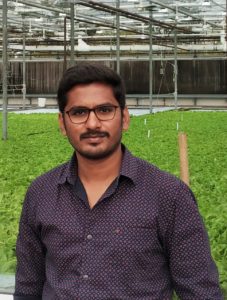
Prasanth A
Dr. Prasanth A. is a Ph.D. holder in Agricultural Extension and Communication from Tamil Nadu Agricultural University (TNAU), Coimbatore. He specializes in agricultural technology transfer and adoption studies, rural livelihood and tribal development research, and gender research in agriculture and food systems. Prasanth has conducted various research studies throughout his academic journey, including “A study on academic achievement, perception of soft skills and employability of Under Graduate Agricultural students” during his B.Sc. (Agri.) program at Agricultural College and Research Institute, TNAU, Madurai in 2014-15. He pursued his Master’s research on “A Study on Nutrient Management Practices among Ragi Growers in Krishnagiri District” at Agricultural College and Research Institute, TNAU, Madurai from 2015 to 2017. His doctoral research entitled “A Holistic Study on Socio-Economic and Cultural Development of Tribal Communities through Social Institutions” was completed at TNAU during 2017-2022. Before joining IFP, Dr. Prasanth worked as a Research Associate at the Institute of Rural Management Anand (IRMA), Gujarat, where he contributed to a project titled “Rendering support in developing Striving for success: A Compendium of Vibrant Women Federations of DAY – NRLM”.
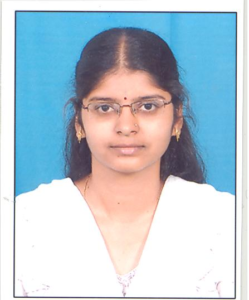
Roja LAKSHMI
Dr. Maila. Roja Lakshmi did her MA in Sociology from University of Hyderabad in 2007, M.Phil in Sociology from Pondicherry University in 2009. She did her PG diploma in Human Rights from University of Hyderabad in 2016. She pursued her PhD. in Social Exclusion and Inclusive Policy, entitled on ‘Secondary Education in Andhra Pradesh: A Comparative Study of APRS and Private Residential Schools’ from School of Social Sciences, University of Hyderabad, Hyderabad in 2016. Her area of specialization includes sociology of education, tribal studies, women studies, human rights, Social and women entrepreneurship, social exclusion and marginality. She worked as an Assistant Professor for 7 years at Centre for Studies in Social Management, School of Social Sciences, Central University of Gujarat (CUG), Gandhinagar, Gujarat, India. Her area of interests includes sociology of education, life skills education, marginality and social exclusion, women and tribal studies, Social entrepreneurship, Human Rights, and Social movements. She has published research papers in the reputed journals including Sage, Elsevier and UGC Care list journals, such as Sambodhi and Infokara. Among others included in IIM Indore Management Journal, and in Bloomsbury, New Delhi. She has presented papers in more than 55 conferences including one in Abroad, and in International and National reputed institutions such as IISC, EDI, IITs, IIMs and in Central and State Universities.
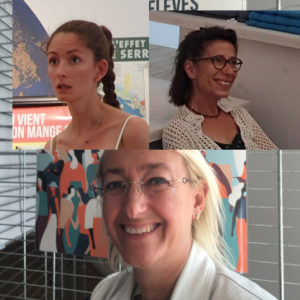
Stéphanie PLICHON, Anne-Lise TOMASSONE, Celine SONNET
The Lycée en Forêt de Montargis is fully committed to the PATAMIL project in close collaboration with Centre-Sciences. Stéphanie PLICHON, history teacher, Céline SONNET, Earth Sciences teacher and Anne-Lise TOMASSONE, Economics and Social Sciences teacher, followed a group of high school students from Seconde to Première. The students carried out two sociological surveys, one on the eating habits of secondary school pupils, the other on food equity in the Montargois area. The results of these surveys were presented at the Musée d’Orléans de la Biodiversité et de l’Environnement (MOBE) in the form of 12 panels during the Fête de la Science on 14 and 15 October 2023. In addition, under the guidance of their teachers, and with the help of Maxime FAUCHON, a French lecturer at the University of Pondicherry, an intercultural exchange took place on 5 April between the EWL students and the French students at this Indian university.
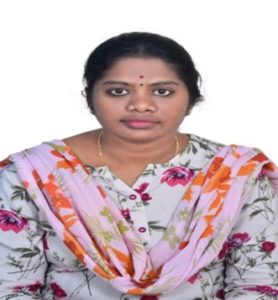
S. MANJUBARKAVI
I have been empirically trying to understand the culture of various indigenous communities and assessing the process of development utilizing an ethnographic approach and specialized in Community studies, Community certificate verification, Identity crisis, Livelihoods and Climate change, Development and Rural Development, Health and Education, Ethnography studies, Inclusion and Exclusion, both Qualitative and Quantitative studies.
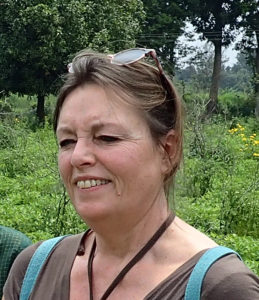
Estelle COCHARD
Since 2008, the Centre Val de Loire region has been involved in decentralised cooperation with the State of Tamil Nadu and Pondicherry in India. Numerous projects are currently underway in the fields of culture, tourism, education and research. At present, thanks to the PATAMIL project, many exchanges are taking place around the issues of sustainable food and access to quality food for all.
This cooperation represents a unique opportunity to share knowledge and practices, particularly with Tamil Nadu, which is seeking to meet climate challenges and improve its agricultural sector by promoting more sustainable methods. Pondicherry, for its part, is also contributing by promoting the establishment of short circuits and direct exchanges between producers and consumers, offering valuable ideas to be explored. This cooperation, supported by the PATAMIL research project, bears witness to the mutual benefit of these exchanges, both at institutional level and between the players in the two territories.
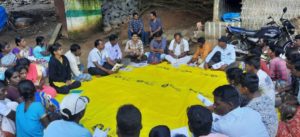
DHAN Foundation
DHAN has collaborated with ASIE, France right from 2009 and this partnership has continued for the PATAMIL. The three PATAMIL projects sites in India namely Jawadhu hills, Madurai and Puducherry has been the DHAN working areas for more than 15 to 30 years.
DHAN Vision is to Promote Poverty Free, Value Based, Equitable, Ecologically Sensitive and Just Society and towards this; our Mission Statement is Building People and Institutions with Value-driven Democratic process to enable the poor for Poverty Eradication, Water & Nutrition security and Ecologically Balanced Development
DHAN always as an enabler has facilitated the linkage & collaboration of Poor Communities with the Development Stakeholders by building strong social capital at the grassroots and these linkages and value practice contributed towards sustainable community institutions. Our development innovation is not only successful but also seen as one of the best models in the country in the Development sector. DHAN follows the Gandhian Principles in the development work.
Towards the SDG Goal 1: End poverty in all its forms everywhere a total of 0.589 million member families have self-declared as they Moved out of Poverty (MoP) and the total reach is 4.981 million lakh poor families spread across 14 states of India (as on 02-10-2023). In the project sites, DHAN has been working on community banking, micro-insurance, small millet in diets, community health, water resources and farmer’s producer organisations & other urban livelihood development and small millet cultivation in the Jawadhu hills. While Local Food System is one of the focus areas in our work, the PATAMIL brings more dimensions and experiences from France and Indian partners. DHAN is proud to collaborate with ASIE and other partners for the PATAMIL project. Local Food System Platforms have been launched at the project sites these will definitely contribute and add value to the poverty eradication & development work by building healthy communities and preserving the environment.
The project team members include Mr. P. Saravanan, Mr. Ganesh Kumar, Mrs. P. Anitha, Mr. Krishnamurthi & Mr. Mohan. While Saravanan has experience in small millet processing machineries is the team leader cum region coordinator, both Ganesh, Anitha worked with the millet farmers federation, and farmers producer organisation in Jawadhu hills and supported by Krishnamurthi and Mohan. In Puducherry Mrs. Kuralarasi and Mr. Boomiraja coordinate the works and Mr. Naguveer & Mr. Mohanalingam coordinate at Madurai. The community leaders especially the Federation office bearers, FPO leaders, and the community workers play a major role in taking forward the Local Food System of PATAMIL.
The DHANs central team consisting of Mr. M.P. Vasimalai (Executive Director), Mr. K.P. Bharathi (Heritage coordinator), Mr. M. Palanisamy (Rainfed Agriculture coordinator), Mr. R. Rajapandian (Community Health coordinator) and Mr. P. Premanand (Small Millets coordinator) and Mrs. K. Ilavarasi (HRD coordinator) offer guidance and support the local teams at the project sites.
DHAN wishes to take up this experience on a large scale with French collaboration in the future.
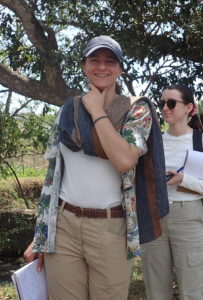
Noémie ATEK
A Master II DDLS student at the University of Orléans, she defended her dissertation in September 2023 after spending 4 months in the Jawadhu Hills. Entitled “Anticipating Climate Change in the Jawadhu Hills (Tamil Nadu, India). Farmers’ Perceptions and Strategies”, this work demonstrated the reality of climate change in the Jawadhu Hills and, through surveys of farmers and farmer groups, revealed cultural adaptation strategies. It was carried out in collaboration with the Dhan Foundation.
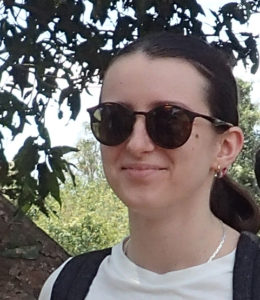
Maeva REZGOCZAN
A Master II DDLS student at the University of Orléans, she defended her dissertation in September 2023 after spending 4 months in the Jawadhu Hills. Entitled “The spread of millets in the Jawadhu Hills (Tamil Nadu, India). What are the development prospects for a tribal territory?”, this work followed crop rotations in a sample of farms, conducted surveys with farmers and farmer groups, and studied the millet economic sector. It was carried out in collaboration with the Dhan Foundation.
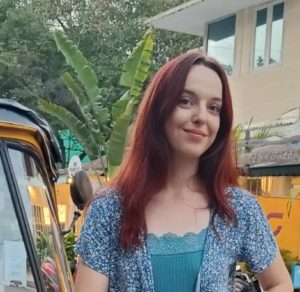
Loula PASQUIET
Responsible for monitoring cooperation between the Centre-Val de Loire Region (France) and the State of Tamil Nadu and Pondicherry (India)
Since 2008, the Centre-Val de Loire Region has maintained decentralized cooperation with the State of Tamil Nadu. This cooperation was extended to the territory of Pondicherry in 2018. Numerous projects are active in the sectors of culture, tourism, education and research, agriculture, and sustainable development. As India is recognized for the excellence of its research, this is a strategic focus of this cooperation.
Each year, the Centre-Val de Loire Region funds applied research projects (APR-IR), thus fostering the establishment of partnerships between research laboratories and socio-economic stakeholders in the Region. These projects can be carried out in conjunction with a cooperation zone within the Region, as is the case with PATAMIL in Tamil Nadu and Pondicherry. To facilitate communication between Indian partners and those in the region, an International Solidarity Volunteer (ISV) represents the Centre-Val de Loire region in India. She plays a key role in this cooperative approach. It is within this framework that Loula Pasquiet, following Lucie Duperray, has been deployed to Pondicherry since November 2024, notably to monitor the PATAMIL project, in conjunction with the region’s teams.
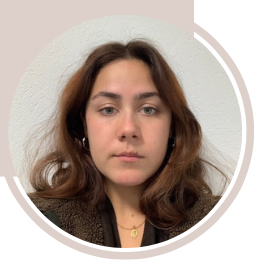
Agathe NUCERA-ROUSSELY
Master’s degree in Territorial Management and Local Development at Jean Jaurès University in Toulouse.
She will work from May to August 2025 with Secours Catholique du Cher and Secours Catholique d’Orléans on the organization of food aid. Three key points: identifying areas where significant social insecurity is not covered by food aid organizations, identifying conversely the sectors and populations covered by several charitable organizations, and finally proposing solutions.
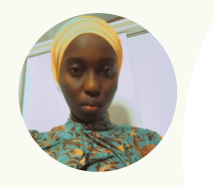
Fatou KINÉ-SAMB
Master’s degree in Sustainable Local and Solidarity Development from the University of Orléans.
She will work from May to August 2025 with Secours Catholique du Cher and Secours Catholique d’Orléans on the organization of food aid. Three key points: identify areas where significant social insecurity is not covered by food aid organizations, identify conversely the sectors and populations covered by several charitable organizations, and finally propose solutions.
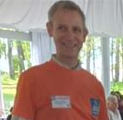
Axel DE MAUPÉOU
Axel de Maupéou, delegate of Secours Catholique du Berry (https://berry.secours-catholique.org), is hosting Agathe Nucera-Roussely and Fatou Kiné-Samb from April to August 2025, who are writing their master’s theses on food aid in Loiret and Cher. In Berry, attention is focused on “white zones” which concentrate great social insecurity but are not covered by organizations providing food aid.
